Having studied African-American studies in college, I’ve always gravitated toward the deep history and legacy that my Black American ancestors contributed to the fabric of our country. And as a mother, I always think about family and the responsibility I have to my kids to sustain and grow our own families legacy.
In 2021, the U.S. Federal Government declared Juneteenth a federal holiday, marking the official acknowledgment of the end of slavery in the states. Although this “holiday” has long been celebrated by Black families before the official designation, the most important takeaway from this is the reclaiming of freedom, the acknowledgement of Black contributions to history and legacy. For Black families, the notion of legacy is ongoing as they revisit those who did not get their fair due.
Much of Black history is about correction and recognition of the past, so with that said, legacy looks different for the children and grandchildren of prominent figures within Black American cultural history. I connected with some to unpack the notion and learn about the paths they are on.
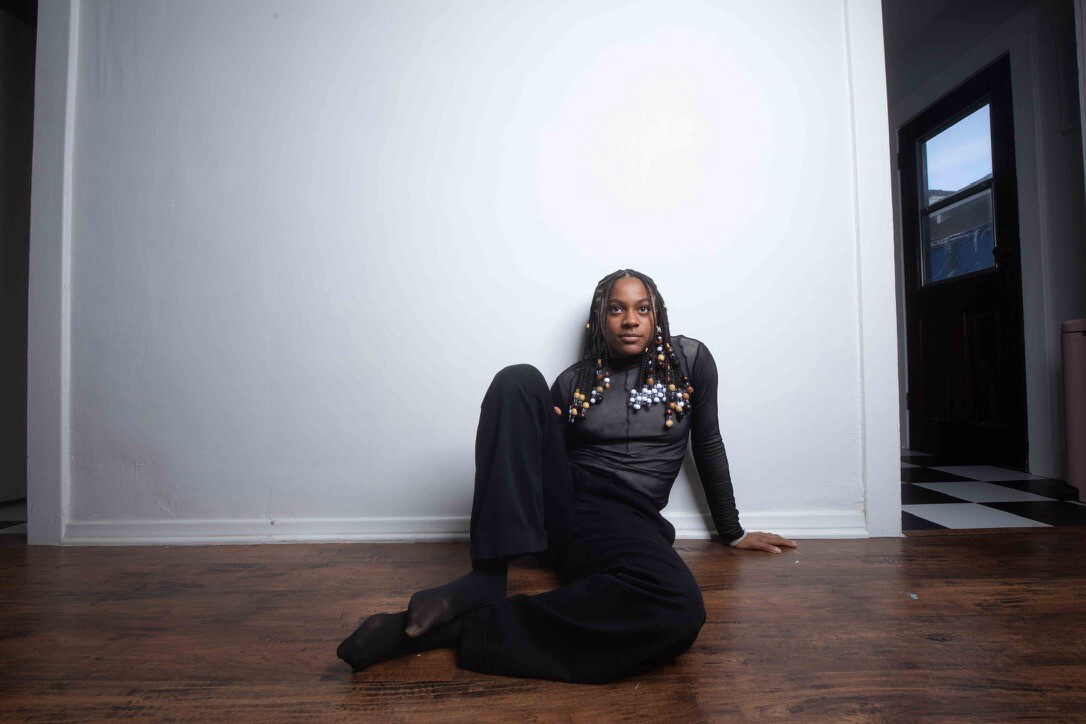
Sophia Heriveaux
The most famous Black artist that comes to mind for many is Jean-Michel Basquiat. Known for being the highest-grossing Black artist of all time, Basquiat has become a legend in Black and contemporary art history. Thanks to the efforts of his family, his sisters, nieces, and nephew, the world got to see a new side of him, the side that raised him and nurtured him as an artist in his early days.
I got to meet one of his nieces, Sophia Heriveaux (daughter of Jeanine Basquiat), as she helped to organize the momentous "King Pleasure" exhibition in New York, which traveled to Los Angeles last year. After graduating from NYU film school last month, Sophia hit the ground running with her own film career.
CULTURED: How does it feel being connected to someone that so many people in the world love and admire?
Sophia Heriveaux: The feeling continues to surprise me. My own amazement from him does not fade away. Each time that I attend a new show, each time I hear the tender words of someone who he has deeply inspired, I feel that humble shock that one person could make such an impact—especially so quickly in a short lifetime.
CULTURED: What does legacy mean to you?
Heriveaux: Legacy, to me, is about honoring a figure following their debut stride. In the context of Jean-Michel Basquiat, legacy has to do with upholding what he would have wanted to see exist if he were alive today.
CULTURED: As a creative person in your own right, do you feel you have big shoes to fill or an easier path to walk than your uncle and family did?
Heriveaux: Both! I feel abundantly fortunate to be in touch with passionate, intelligent people as I build my own path. Still, I can’t lie, it feels like a fair bit of pressure!
CULTURED: What are some of your current goals and projects that we can support?
Heriveaux: I am a filmmaker. I am a director and producer and have a production company called Goldfin. Goldfin is about to start launching new branding and other initiatives. The most existing project on deck for Goldfin is a feature, Baby Did A Bad, Bad Thing, which I am producing, and will likely shoot in France in 2025.
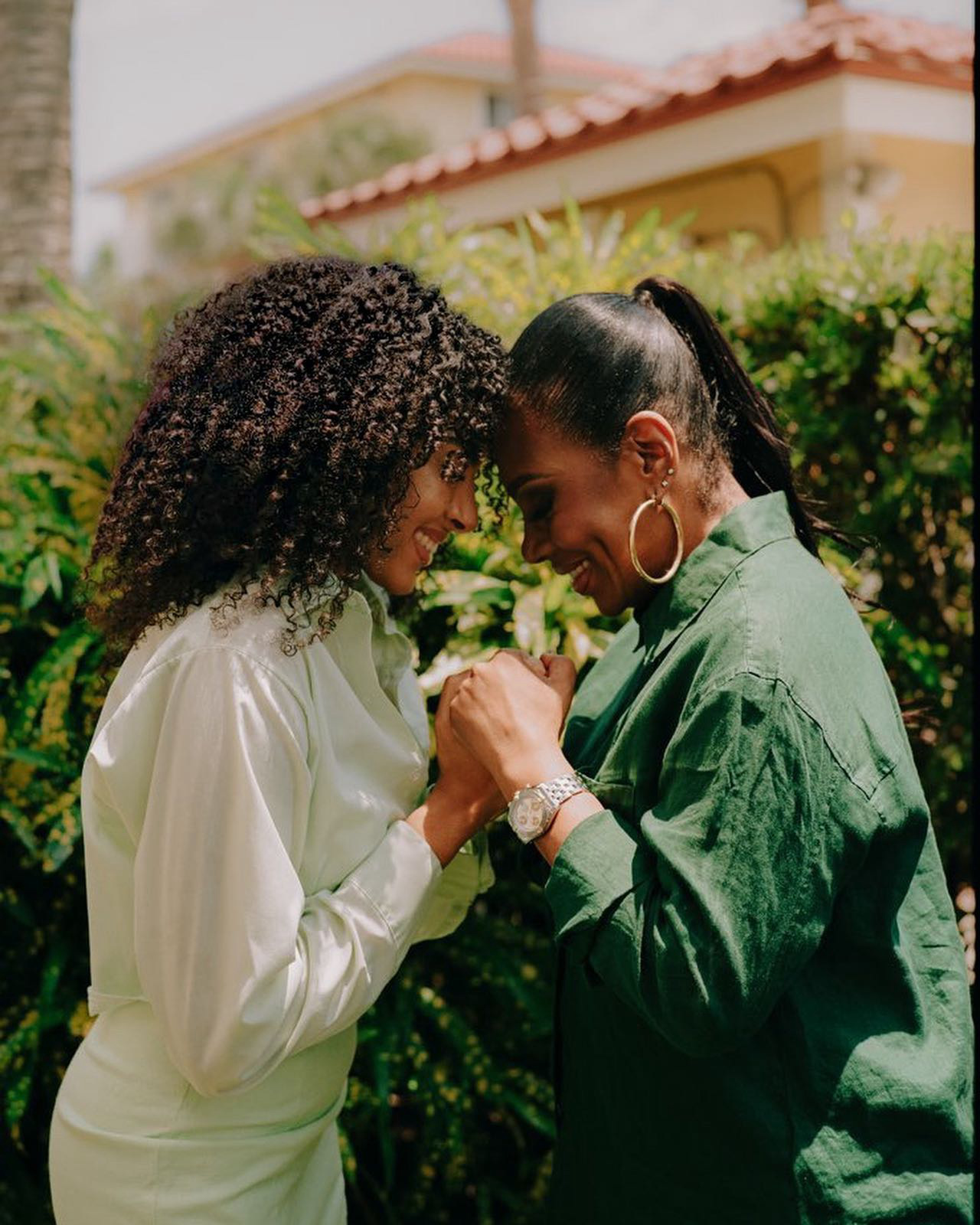
Ivy Coco Maurice
We’ve all grown up watching incredible Black legends on the stage and screen. Sheryl Lee Ralph, a Broadway legend turned screen star, has warmed our hearts with her beautiful smile and grace for years. And with her award-winning role on Abbott Elementary, Ralph inspires her onscreen students and the rest of us to be our best selves. So, it's no surprise she has raised a stunning family doing incredible work in the community. Her gorgeous daughter and stylist, Ivy Coco Maurice, is also the Vice President of Walk Good LA, a Black- and Brown-led community wellness organization based in Los Angeles.
CULTURED: How does it feel being connected to someone that so people in the world know, love and admire?
Ivy Coco Maurice: I love being connected to a public figure because I am the seed of someone who has made an impact in the world and their community. When I hear people say, “I love your Mom,” I always respond with, “Me too!” I love her the same way the world does. I have taken the time to also listen to her story and also be inspired by her as well.
CULTURED: What does legacy mean to you?
Maurice: To me, legacy is about family. Growing up, my mother always reminded my brother and me, “When I leave this Earth, you and your brother will only have each other.” Her words were a constant reminder to stay rooted in our family. I cherish my family, our culture, and the enduring love that has been passed down through generations.
CULTURED: Do you feel you have big shoes to fill or an easier path to walk than your mother and family did?
Maurice: I don’t feel like I have shoes to fill, but I recognize my privilege and understand that my mother, father, grandmother, and grandfather ran so I could walk. Though I might not follow the same path, I am forging my own way, made possible by their sacrifices. I don't take any of my gifts for granted, knowing I am a blend of each of them, who have nurtured me with love, patience, time, and compassion. The greatest lesson they taught me is that I don’t need to fill their shoes; I need to fill my cup, which comes from doing my best.
CULTURED: What are some of your current goals and projects that we can support?
Maurice: If you are ever in LA, please come visit @TheWalkgoodYard. My brother, cousin, and I started @walkgoodla back in 2020 and we are a Black- and Brown-led community wellness organization based in Los Angeles. We are a family dedicated to bringing people from all walks of life together to heal in solidarity through the arts, health, and wellness.
All June, we have WalkGood Wednesdays and all of our classes will be $4 to celebrate our four-year anniversary. Also, check out and shop our new collection with @On. Lastly, sign up for our 5k in September. Whether you walk it or opt to run, this event brings neighborhoods, groups, families, and individuals outside together along the Park to Playa Trail at Kenneth State Recreational Area.
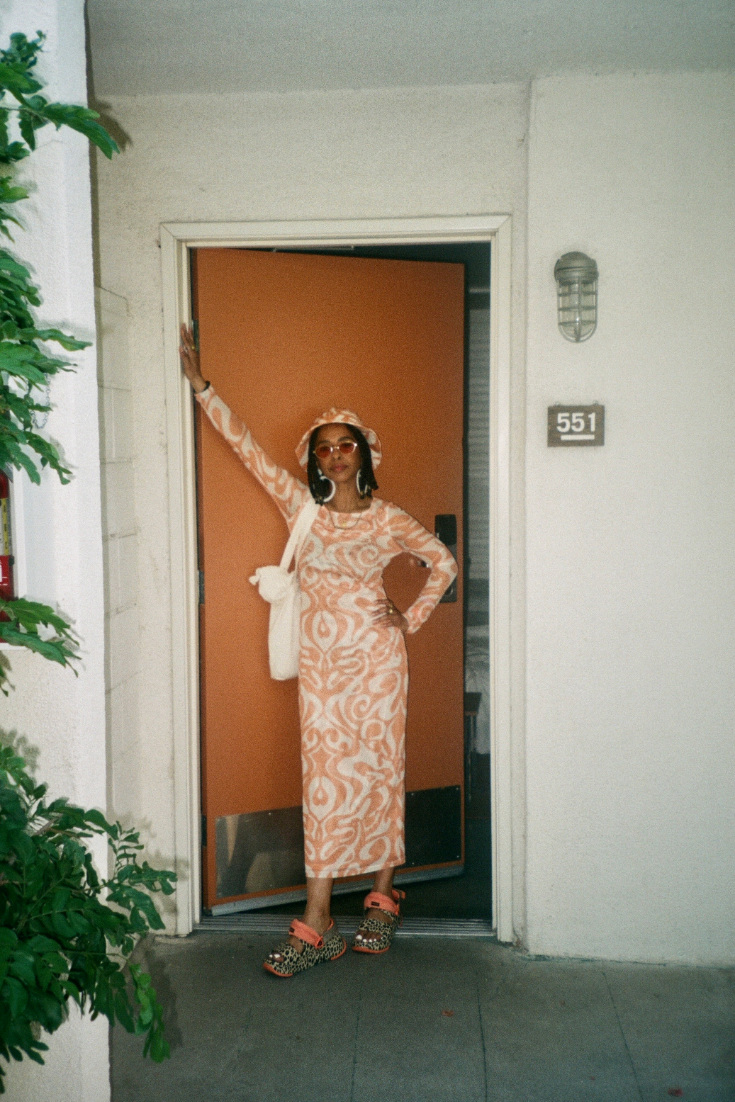
Novena Carmel
Music is one of the most incredible contributions Black folks have made to American history. Living legend, Sly Stone, known mainly as the frontman for Sly and the Family Stone, set the stage for the epic sounds generated from the '60s and '70s, deeply influencing music to this present day. A pioneer of new sound, Stone ushered in a wave of beautifully distinct Black sound in rock ‘n’ roll and funk. His daughter, Novena Carmel, an LA-based DJ and radio host, brings joy and new sounds to the airwaves with her KCRW show.
CULTURED: How does it feel being connected to someone that so many people in the world love and admire?
Novena Carmel: It makes me feel proud and anchored in greatness. Witnessing folks moved by any music makes me happy, but when it's the music of my Sly and the Family Stone, there's an added element of joy in there too. My family connection also inspires and activates me to channel my own gifts into a contribution to the world in some way.
CULTURED: What does legacy mean to you?
Carmel: People often think of legacy as this big concept that only some people or organizations have, but legacy is what every one of us is creating and will be here when we're gone, of any scale, intangible or tangible. Whether it's how you made people feel or the monument with your name on it. It's how the planet remembers the impact of our presence on it, and whatever the size, hopefully the impact is positive.
CULTURED: As a creative person in your own right, do you feel you have big shoes to fill or an easier path to walk than your uncle and family did?
Carmel: I feel that my family has taken great care in assisting me to cobble my own shoes. They may have aesthetic and structural similarities, but they're molded to my feet, and get more molded to perfection with time.
CULTURED: What are some of your current goals and projects that we can support?
Carmel: Please join me in the joy of music discovery on the radio show that I host Monday to Friday 9 a.m. to noon PT. It's called Morning Becomes Eclectic on KCRW and in addition to the terrestrial 89.9 FM dial, you can listen very easily on the KCRW app from anywhere in the world!
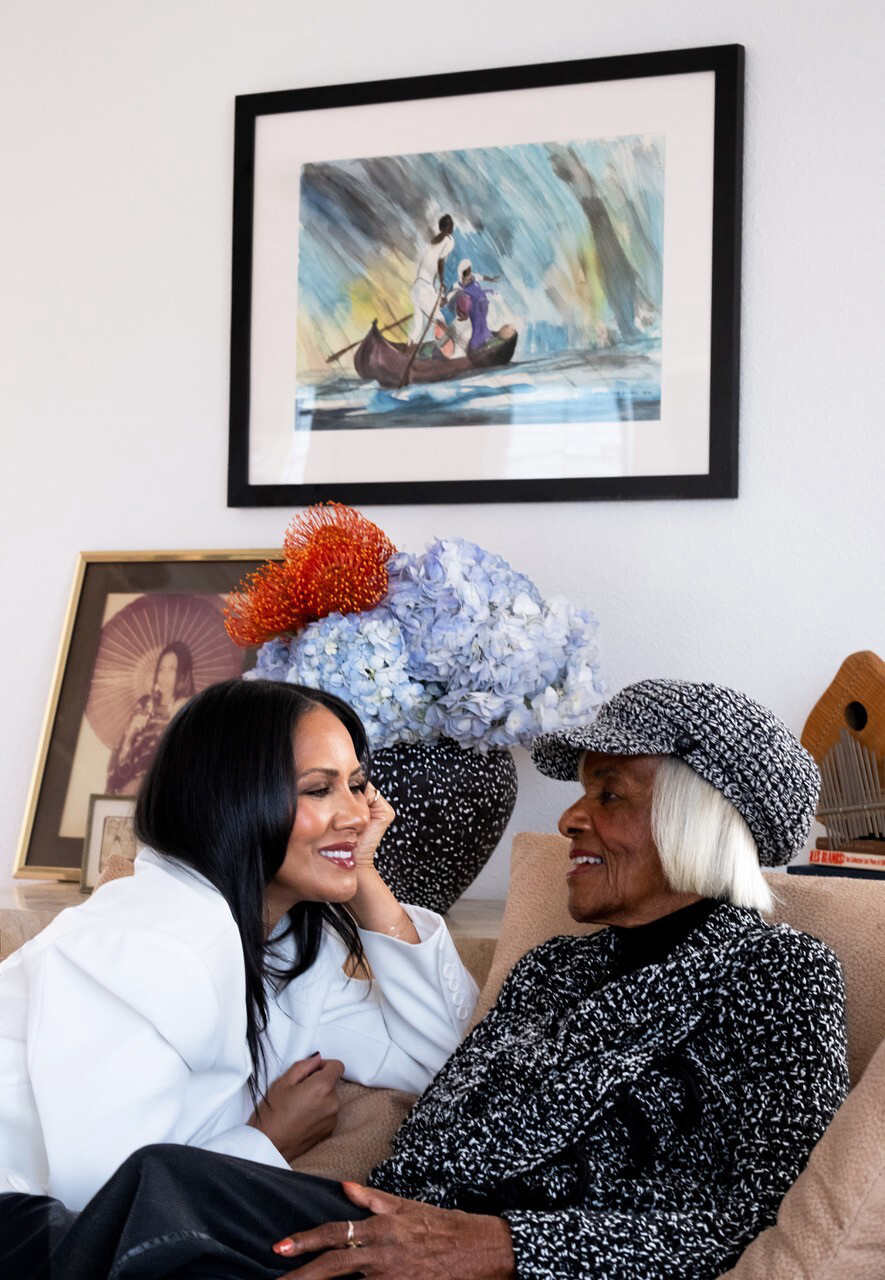
Taye Hansberry
Last but not least, I had the pleasure of connecting with content creator and influencer Taye Hansberry who comes from an inspiring lineage. The most well-known figure in Hansberry’s family is of course her aunt, Lorraine Hansberry, the first African-American female author to have a play performed on Broadway. Her theatrical masterpiece, the play A Raisin in the Sun, highlighted the lives of Black Americans living under racial segregation.
CULTURED: How does it feel being connected to someone that so many people in the world know, love and admire?
Taye Hansberry: It’s a beautiful feeling to be a part of a family that has contributed historically to the world—to know that their talent and brilliance has been recognized by so many. My aunt Lorraine paved the way for so many with her courage and forward-thinking on life, race, culture, creativity, human rights, and the world. Being the first Black woman to have a play on Broadway and the youngest at the time in the 1950s is quite extraordinary.
Also, her father, my great grandfather Carl Hansberry, was known as the father of the kitchenette, and paved the way as a Black real estate entrepreneur in 1930s, '40s, and '50s Chicago for Black people to have equal housing rights with his United States Supreme Court case fighting restricted land covenants. In 1940, Hansberry vs Lee opened up neighborhoods on the South Side of Chicago to Black families who were previously not permitted to purchase homes there.
CULTURED: What does legacy mean to you?
Hansberry: Legacy for me is leaving your mark for yourself and your family. Legacy is history and history is unbelievably important. Legacy, especially for Black Americans, is critical for the generations beyond us to know that they too can achieve whatever they want and to never forget what we have been through as a people.
CULTURED: Do you feel you have big shoes to fill or an easier path to walk than your family did?
Hansberry: It's definitely a yes and no question. Despite what people may think, I would say that being from a family of known creatives and activists does not necessarily mean that the path is easier. Definitely not for me. I feel just like with any other family, we all learn from the successes and mistakes of the people that came before us. Fame does not always equate to ease.
CULTURED: What are some of your current goals and projects that we can support?
Hansberry: For the past 14 years, I have been a blogger/influencer/content creator. [I was] amongst the first Black fashion and beauty bloggers in the space, before it was ever considered a career and when people thought we were all crazy for doing what we were doing. That part of my life will continue in this ever-changing landscape of content creation. In those 14 years, I've worked with many brands and hope to continue to do so, particularly in the luxury space. I’d love for luxury brands and fashion houses to understand that a Black woman in her late 40s can market their products beautifully because Black women buy and use their products—a fact I think is often set aside.
Aside from picking up the camera again, I was a photographer before I was an influencer. I have some projects of my own in the works. I’m developing a podcast and am looking for a home for that. I've also written a beautiful feature film and have started to look for a home for it. There are a couple other projects fashion and beauty wise that I am starting. I want to emphasize that Black women founders and entrepreneurs are worthy of funding—another fact set aside. In this day and age, people rarely do just one thing. We all wear many hats and that is an asset.
On the personal family side, I would like some type of restitution for the properties and land that was taken from my great-grandfather Carl A Hansberry and my now 101-year-old grandmother Mamie Hansberry in Chicago. My great grandfather's story is not vastly known but like my aunt Lorraine (his daughter), it is rich with history and firsts. Like so many other Black families, our generational wealth was obliterated purposefully.
I also believe that the direct descendants of my great aunt Lorraine Hansberry should be involved and benefit from her hard-earned legacy of which currently we have zero input. I feel very connected to Lorraine’s as her great niece and should be involved in the ongoing shaping of her legacy and my family name. My 101-year-old grandmother Mamie Hansberry was extremely close to her sister and through that I have always found it odd that my grandmother was stripped of that benefit after Lorraine's untimely death, which unfortunately is not an uncommon occurrence for families of successful Black creatives.
Lorriane wanted her sister and her sister's descendants to benefit from and help carry on her legacy—the Hansberry Legacy. I’ve always found it peculiar that the only people that do not benefit from the Hansberry name and legacy are the Hansberrys. It is my grandmother and my hope that that will change within her lifetime.



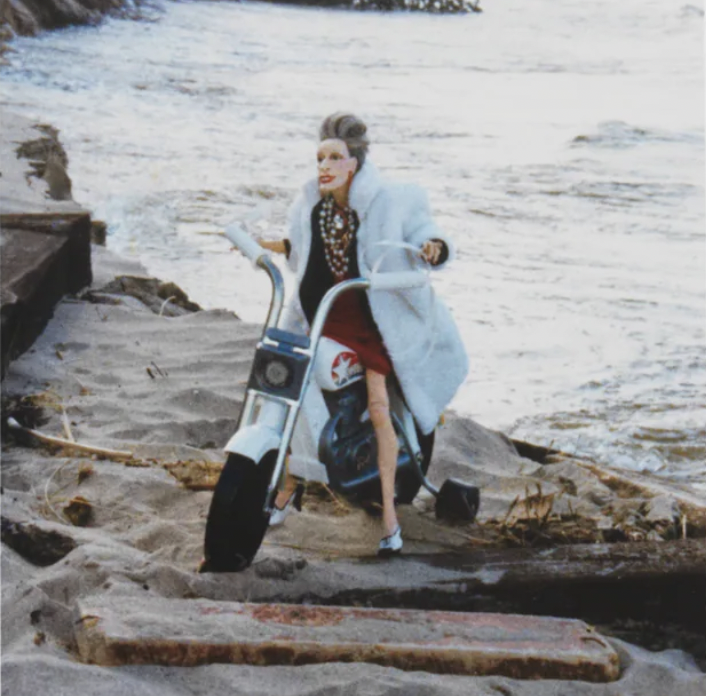


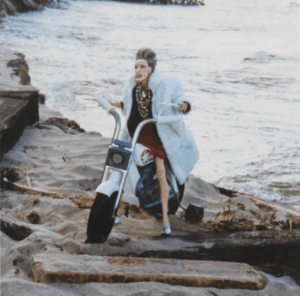



 in your life?
in your life?

